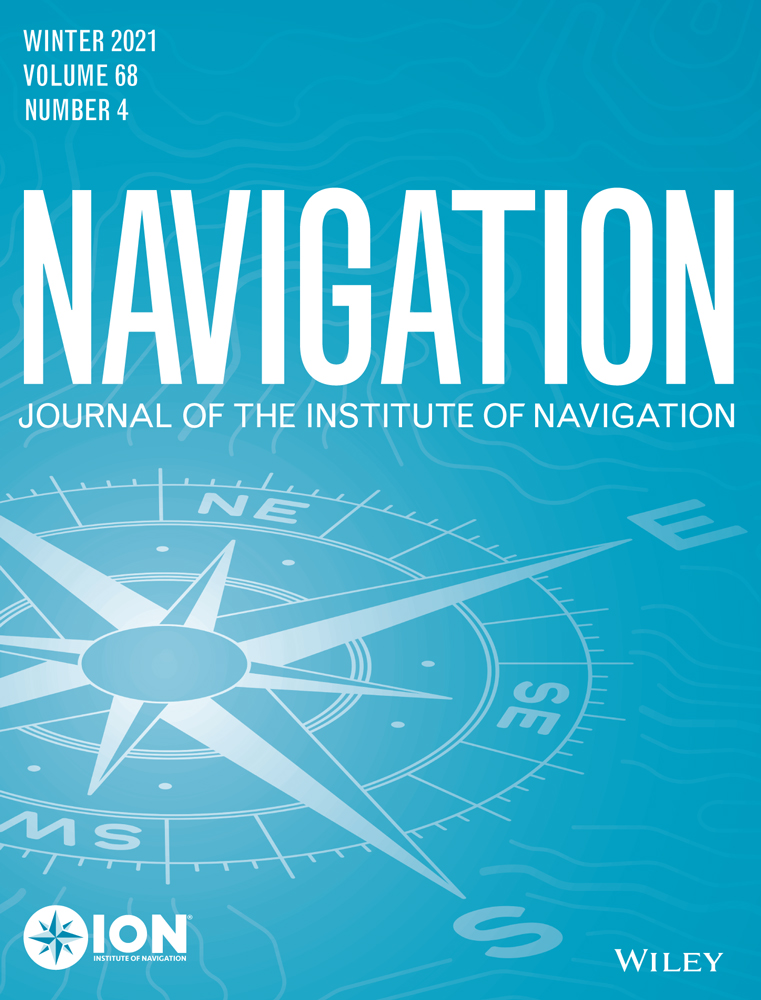Integer Ambiguity Resolution on Undifferenced GPS Phase Measurements and Its Application to PPP and Satellite Precise Orbit Determination
Abstract
Integer ambiguity fixing is routinely applied to double-differenced GPS phase measurements to achieve precise positioning. Double-differencing is interesting because it removes most of the common errors between the different signal paths. However, if common errors can be estimated it becomes attractive to fix integer ambiguities on undifferenced measurements. Phase measurements then become pseudorange-like measurements with a noise level of a few millimeters.
This paper introduces a new method for fixing dual-frequency GPS ambiguities on undifferenced phase measurements either locally or globally. The clocks for the GPS constellation obtained during this process can be used for precise point positioning of ground based receivers and for precise orbit determination of low Earth orbiting satellites. The resulting positioning precision is comparable to that of standard differential positioning without the need for a reference station. Ambiguity-fixed satellite orbits for the GRACE and Jason satellites are more precise than the most precise solution available today.




